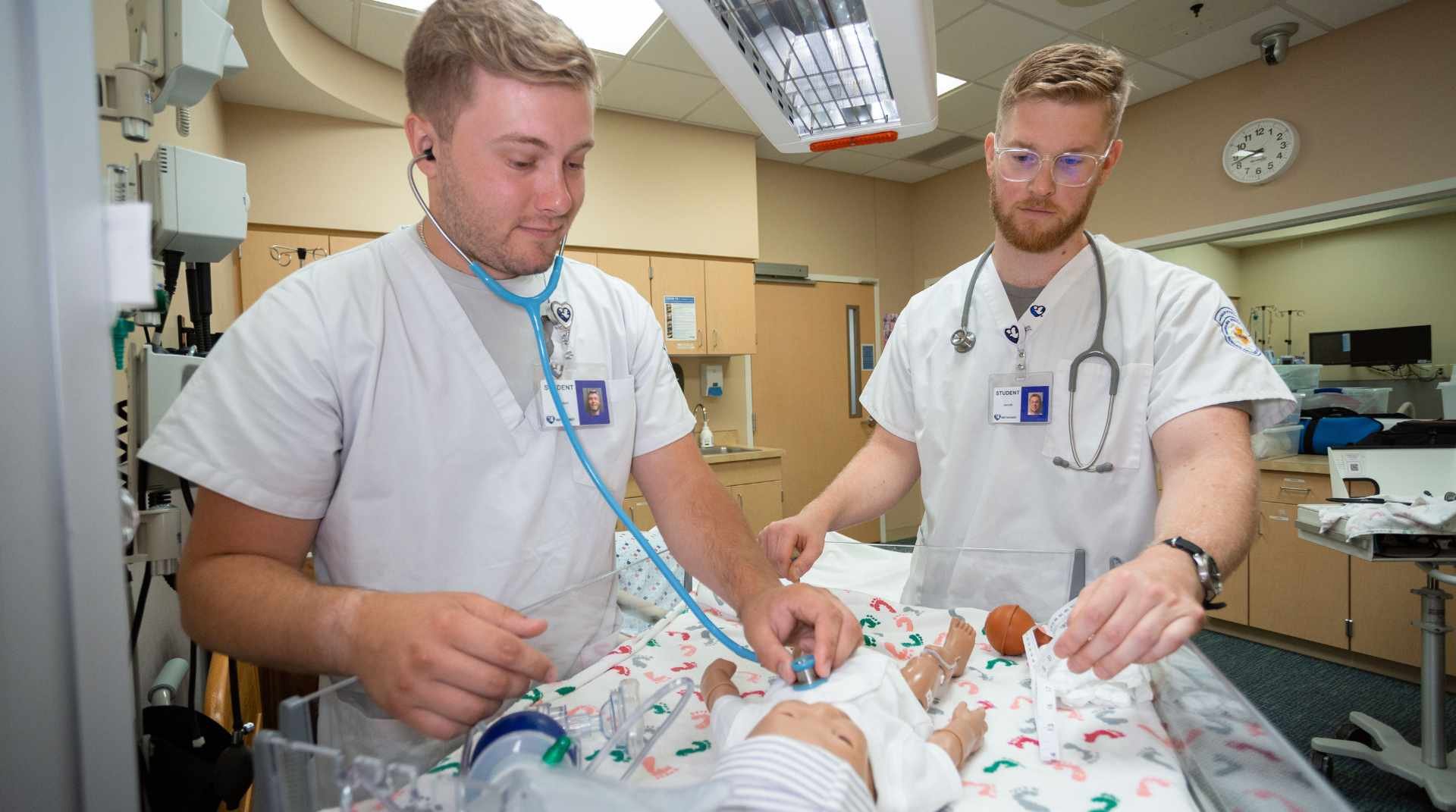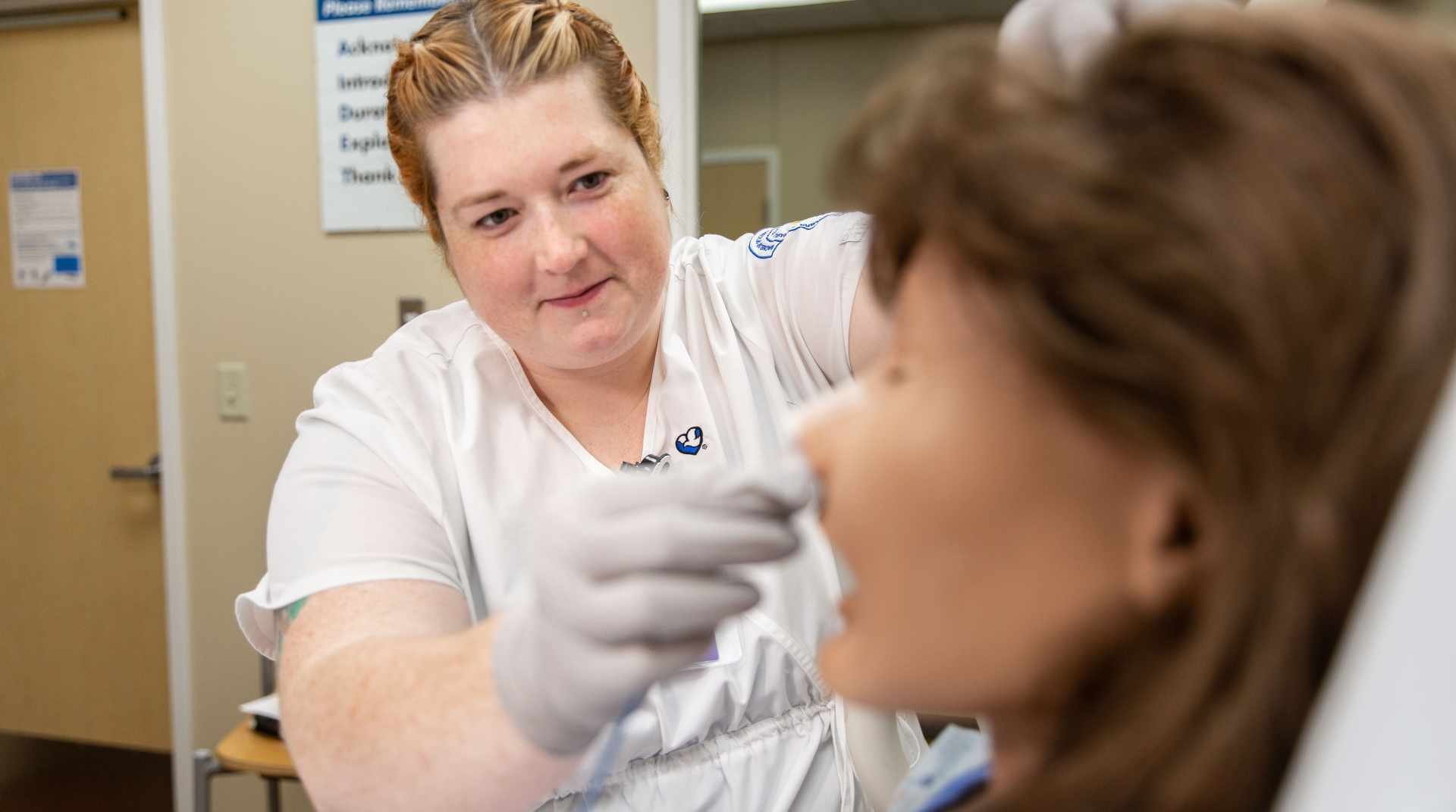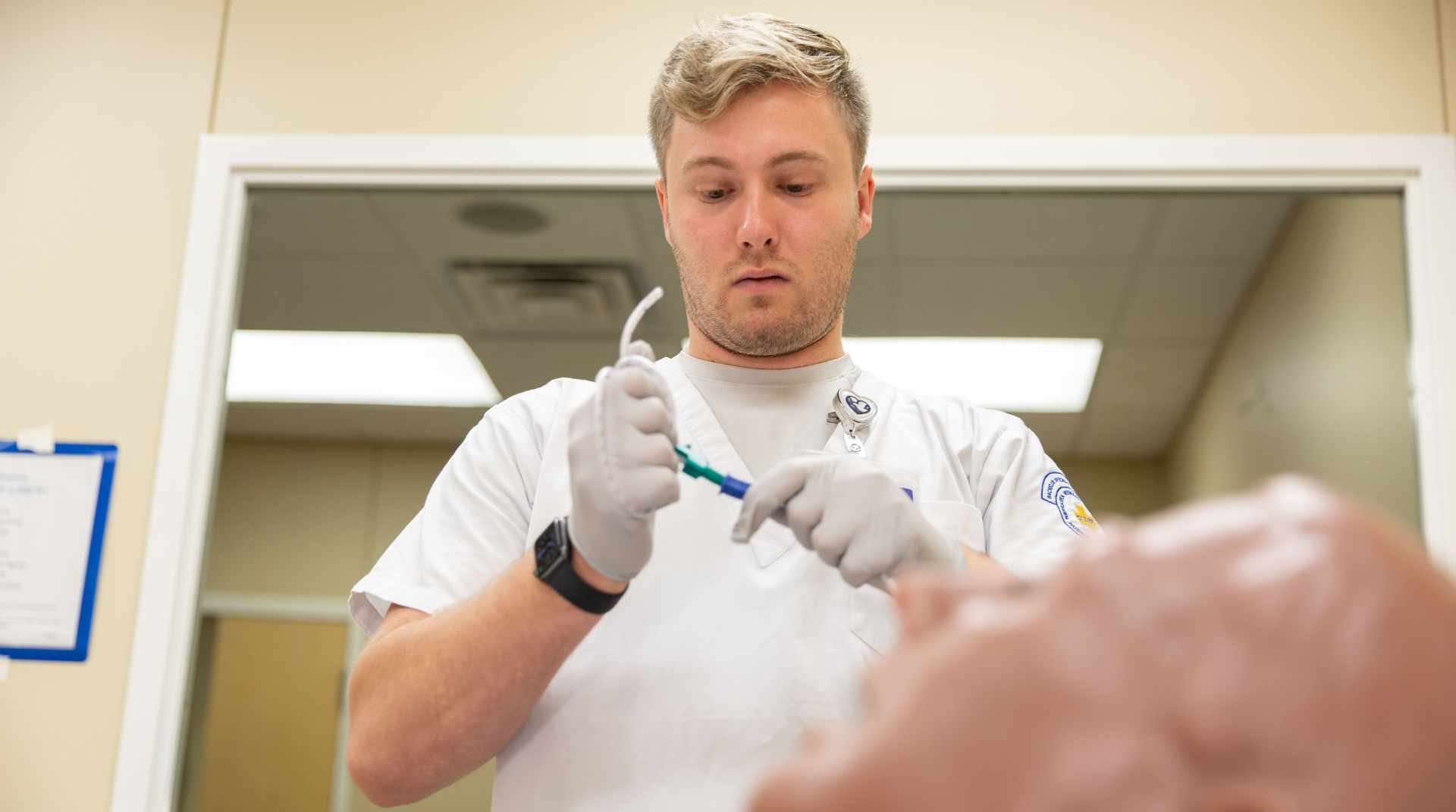 Being a nurse requires specific skills to care for patients’ physical health, but holistic care in nursing is essential.
Being a nurse requires specific skills to care for patients’ physical health, but holistic care in nursing is essential.
The 10 caritas processes is a concept developed by Dr. Jean Watson, who is an internationally-recognized nurse theorist and nursing professor.
Her Theory of Human Caring is at the foundation of the Bachelor of Science in Nursing program at Nebraska Methodist College (NMC).
First-year nursing students at NMC are introduced to Jean Watson’s Theory of Caring in their very first course. From that point on, Jean Watson’s theories are intertwined in each nursing student’s education.
Being a skilled nurse requires more than meets the eye. Nurses are caregivers helping others in their healing processes, and providing that care for another person goes deeper than the many technical skills listed in the job description.
Simply put, NMC believes it is not enough to provide care for a person without truly caring about the person, and this is where Jean Watson’s Theory of Human Caring plays a pivotal role.
 Practical Application of Watson’s Caring Theory
Practical Application of Watson’s Caring Theory
Through Watson’s 10 caritas processes theory, students are taught to care for patients’ all-around wellbeing — their physical health, but also their emotional and spiritual state.
According to nursing professor Echo Koehler, Watson’s lessons of holistic care are a central component of what professors teach in NMC’s nursing program.
“We do activities within the Nursing Arts Center that aren’t just skills,” Koehler said. “We’ll do activities that teach students how to practice the loving-kindness that Watson talks about.”
In NMC’s Nursing Arts Center, students hone their skills on a wide array of life-sized anatomical human models or manikins, appropriately named “The Watson Family.”
The students practice interacting with the manikins as if they were providing care for real people. Students learn how to comfort their patients by holding their hands or making sure they are at ease. This might seem basic, but to a patient it fosters a healing environment, which is integral to Watson’s theory. A healing environment is a caring atmosphere that nurtures a patient’s potential.
Koehler emphasized that students also learn the importance of self-care for nurses. A healing environment in nursing is just as important as one for patients. In sensitive settings like hospice, nurses confront death, dying and grief. In line with Watson’s theory, it’s paramount for caregivers to rejuvenate and heal before taking on the responsibility of caring for others. This ensures that patients have an optimal healing environment.
The structure for this theory of caring is built upon 10 carative factors.
 Watson’s 10 Caritas: Core Processes in Caring Theory
Watson’s 10 Caritas: Core Processes in Caring Theory
Embrace: Sustaining humanistic-altruistic values by practicing loving-kindness with self and others.
Inspire: Being authentically present, fostering faith, hope and valuing others.
Trust: Nurturing sensitivity to self and others by evolving spiritual practices, transcending ego.
Nurture: Fostering and maintaining loving, trusting-caring relationships.
Forgive: Allowing for expression of positive and negative feelings — authentically listening to another person's story.
Deepen: Creatively problem-solving through the caritas process — full use of self and artistry of caring-healing practices via use of all ways of knowing, being, doing and becoming.
Balance: Engaging in transpersonal teaching and learning within the context of caring relationships.
Co-create: Creating a healing environment at all levels; subtle environment for energetic authentic caring presence.
Minister: Reverentially assisting with basic needs as sacred acts, touching mind, body and spirit of others; sustaining human dignity.
Open: Opening to spiritual, mystery, unknowns- allowing for miracles.
For more information about Jean Watson, visit www.watsoncaringscience.org.
Interested in diving deeper into the world of holistic nursing and the profound impact of Watson's Theory of Caring? Explore NMC’s BSN program today and embark on a transformative journey in healthcare.


